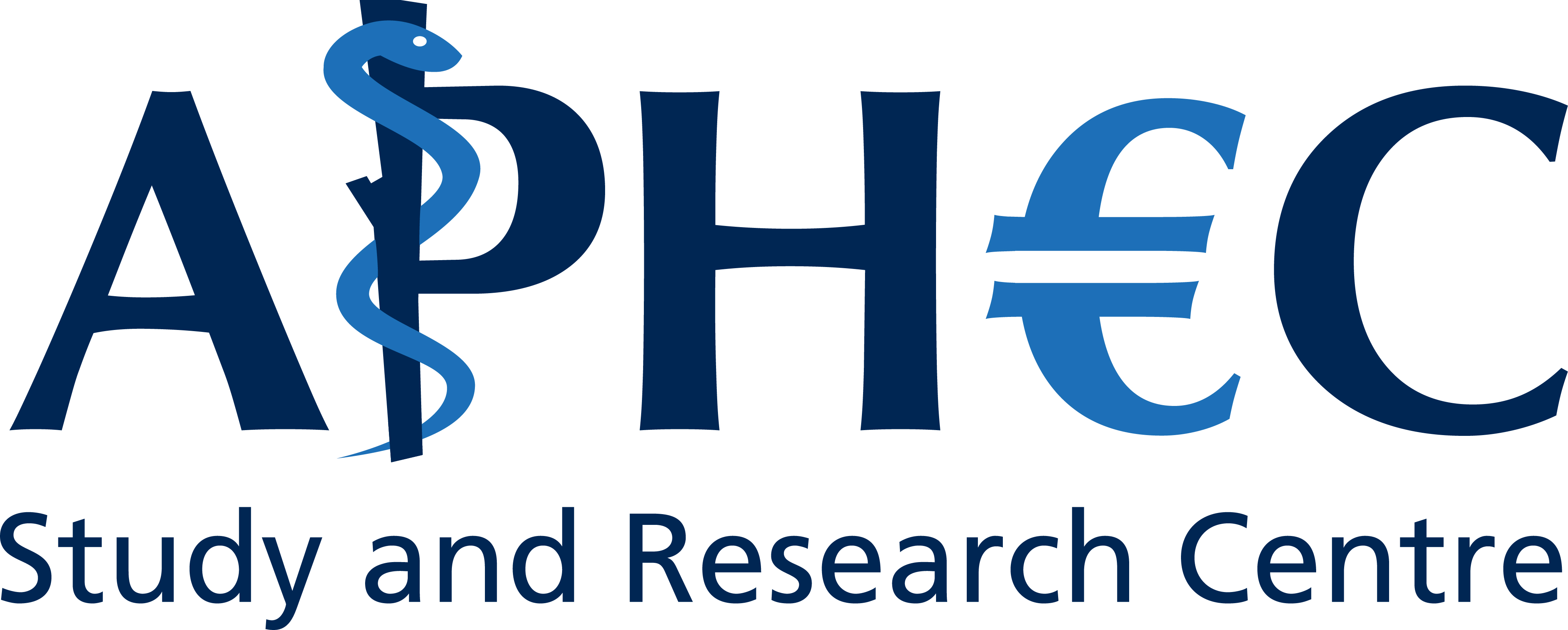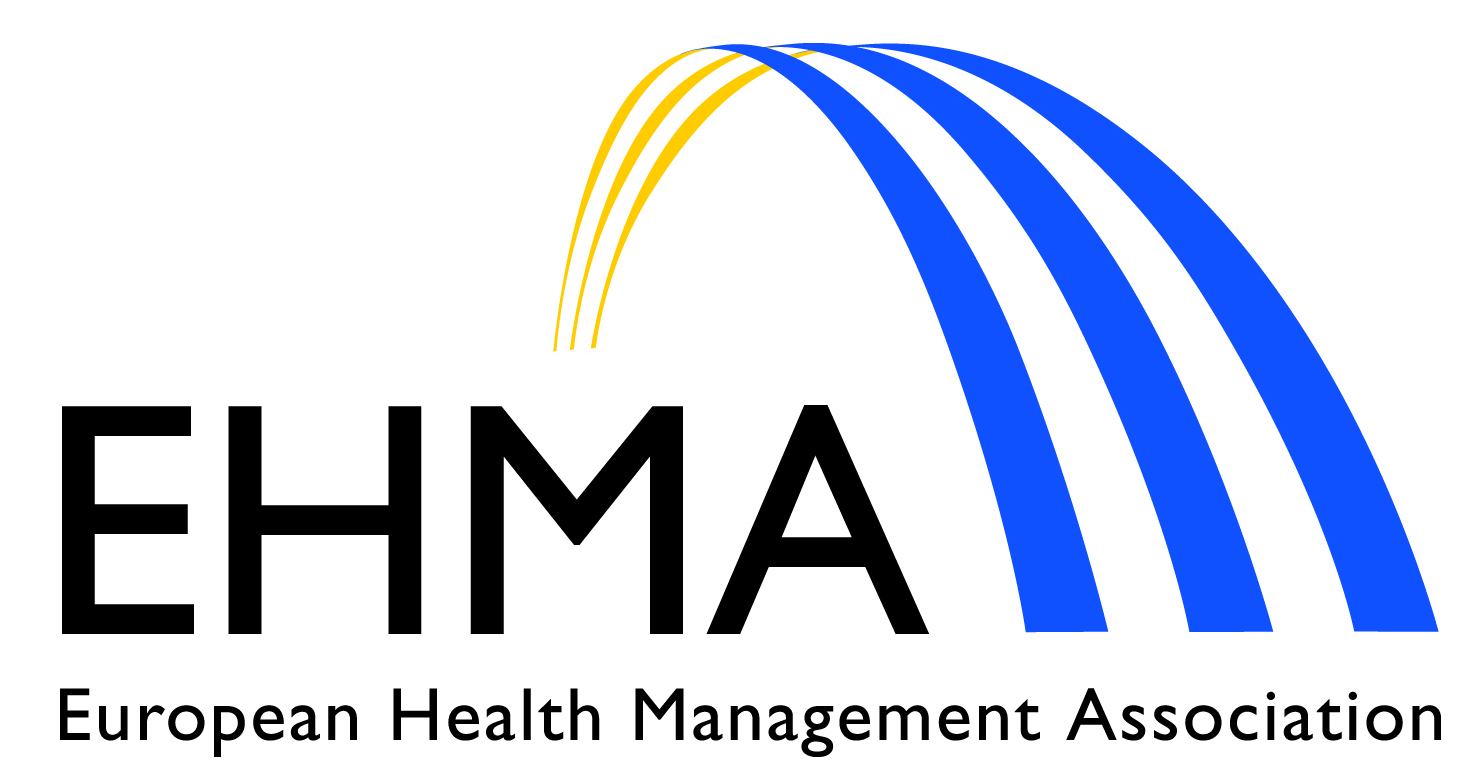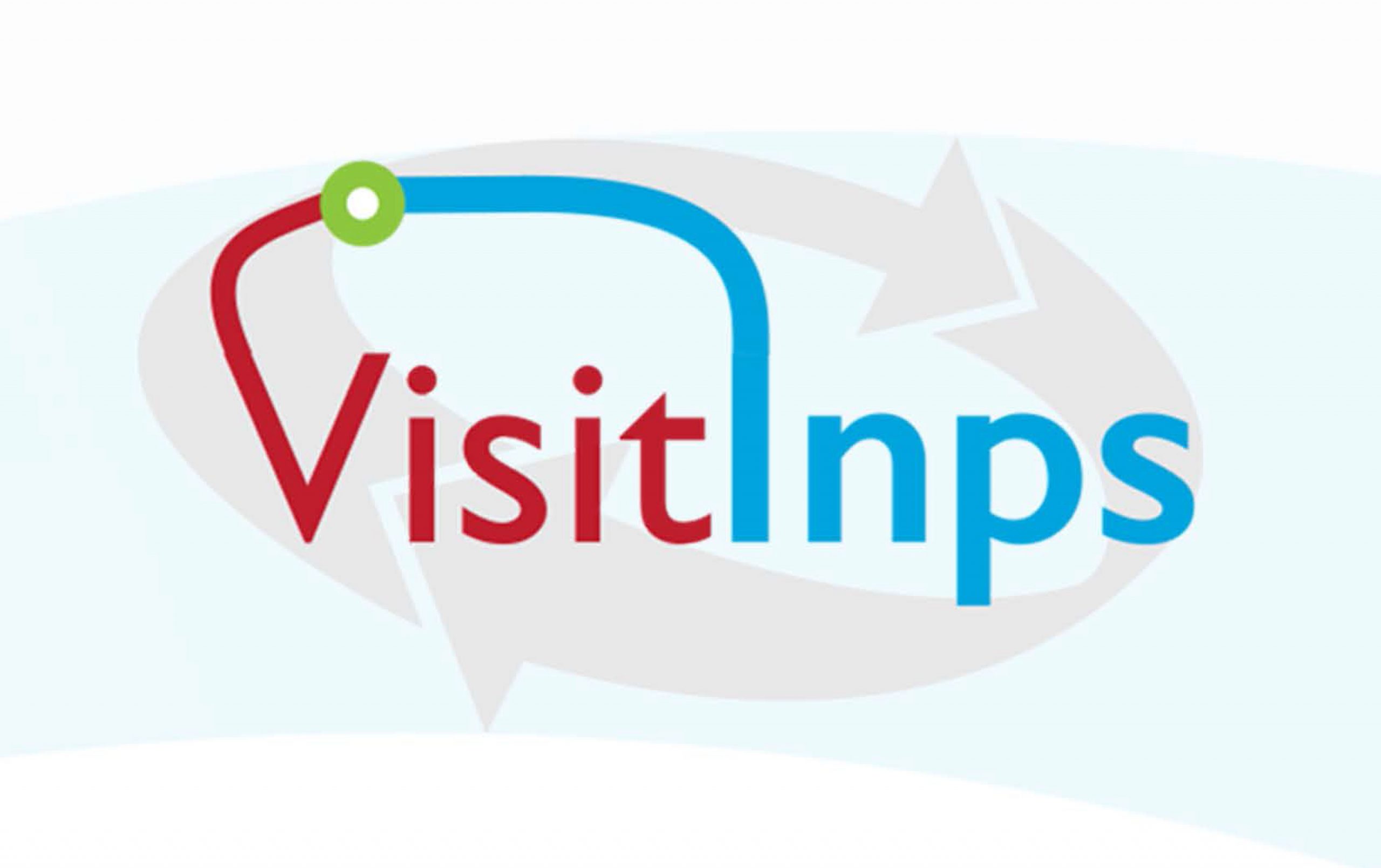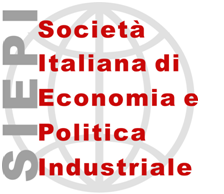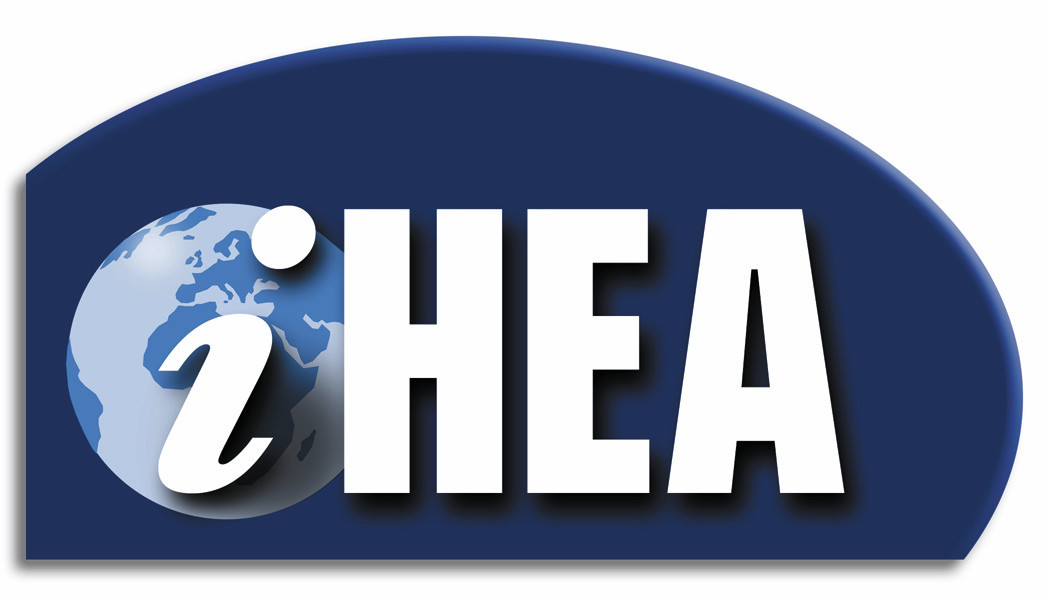AIES Health Economics Webinar Series
Nov 7th, 2023, 12:30 PM – 1:30 PM
“Social interactions, loneliness and health”
Invited speaker: Matija Kovacic, European Commission, Joint Research Centre (JRC)
Abstract: Loneliness is widely recognized as being a public health issue. This research investigates the relationship between historically rooted norms that drive individuals to conform to predefined behavioural standards and contemporary perceptions of social interactions and attitudes towards loneliness. Using a sub-population of second-generation immigrants, we identify an intergenerationally transmitted component of culture that reflects the importance of restrained discipline and rules characterizing highly intensive pre-industrial agricultural systems. We show that this cultural dimension influences perceptions of the quality of social relationships and significantly affects the likelihood of experiencing loneliness. The identified trait is then used to instrument loneliness in a two-stage model for health. We find that loneliness directly affects body mass index and some specific mental health issues. We also argue that loneliness can affect other physical health issues through its indirect impact on BMI. The results are robust to a battery of sensitivity checks. An additional part of the research explores the link between loneliness, adverse early life conditions, and health, relying on an innovative and EU-wide dataset on loneliness and also considering individuals younger than 50 years old. We find a persistent and significant effect of adverse early-life conditions on loneliness and health, as well as a considerable incidence of loneliness and mental/emotional disorders among younger populations.
Authors: Matija Kovacic and Elizabeth Casabianca
AIES Health Economics Webinar Series
May 19th, 2023, 12:30 PM – 1:30 PM
“THE IMPACT OF ECUADORIAN HEALTH REFORM ON PUBLIC HOSPITAL ADMISSIONS?”
Invited speaker: Giacomo Pasini, Università Cà Foscari, Venezia
Abstract: The new Ecuadorian constitution ratified by the referendum of 2008 guaranteed, among other rights, that to healthcare. It affected all hospitals managed by the Ministry of Public Health, leaving the others unaffected. This provides a novel opportunity to examine the impact of health policy reform on public hospital admissions via a difference-in-difference approach. Exploiting data from 177 public hospitals in 2006-2009, we found that the post-reform increase in the demand for free medical services was driven mainly by patients who needed specialized treatment.
Authors: Francesco Moscone, Giacomo Pasini, Juan A. Piedra-Pena
AIES Health Economics Webinar Series
March 23rd, 2023, 12:30 PM – 1:30 PM
“HARM REDUCTION: WHEN DOES IT IMPROVE HEALTH, AND WHEN DOES IT BACKFIRE?”
Invited speaker: Davide Dragone, Department of Economics, University of Bologna
Abstract: A subset of harm reduction strategies encourages individuals to switch from a harmful addictive good to a less harmful addictive good; examples include e-cigarettes (substitutes for combustible cigarettes) and methadone and buprenorphine (substitutes for opioids). Such harm reduction methods have proven to be controversial. Advocates argue that people struggling with addiction benefit because they can switch to a less harmful substance, but opponents argue that this could encourage abstainers to begin using the harm reduction method or even the original addictive
good. This paper builds on theories of addiction to model the introduction of a harm reduction method, and it demonstrates the conditions under which each side is correct. The three key factors determining whether the introduction of a harm reduction method reduces or worsens health harms are: 1) the enjoyableness of the harm reduction method, 2) the addictiveness of the harm reduction method, and 3) the substitutability of the harm reduction method with the original addictive good. Knowledge of these conditions can help inform regulation of harm reduction methods.
Link to the paper: https://www.nber.org/papers/w30926
To participate in a webinar, you need to register first through the following form: https://www.aiesweb.it/webinar-registration/
On the day of the webinar, join the room a few minutes before the start (via the link provided after registration). When the presenter joins the room, the webinar will begin.
EuHEA Seminar Series
Fall 2022
The EuHEA Seminar Series aims to foster exchange between health economists across different countries and institutions and present cutting-edge research in all areas of health economics. The series is organized as an online event and will take place on Tuesdays, 1:30-2:30pm, starting on September 27, 2022. A Scientific Committee chaired by Karine Lamiraud (ESSEC Paris) and Rossella Verzulli (University of Bologna) will coordinate the series in the academic year 2022/2023.
AIES Webinar n. 2
28 Maggio 2021 ore 12:00
Proposte per implementare efficacemente il PNRR
Seminario online su Zoom
Relatori: Aleksandra Torbica, Stefano Lorusso, Federico Spandonaro, Milena Vainieri, Cristina Masella, Francesco Longo, Americo Cicchetti, Giuseppe Costa
Il seminario è organizzato con il patrocinio di AIES – Associazione Italiana di Economia Sanitaria
Il PNRR è un documento di alta visione e di allocazione di importanti risorse di investimento per il SSN che devono garantire valore entro cinque anni, per ottenere l’effettivo riconoscimento finanziario da parte della EU e giustificare l’aumento del debito per le generazioni future.
La partita attuativa è, quindi, solo iniziata e durerà cinque anni: un tempo breve in cui occorre definire la progettazione esecutiva per ogni misura, costruire pianificazioni regionali, attuare le politiche nelle singole aziende sanitarie locali. Il successo non può allora considerarsi scontato, richiedendo grande coesione di intenti, da perseguirsi con un forte impegno finalizzato a creare convergenze e collaborazione istituzionale.
Nell’ottica descritta, un gruppo di studiosi di economia, management e politiche sanitarie, appartenenti a sei università hanno ritenuto di confrontarsi sul tema, ed esperire il tentativo di trovare una convergenza di visioni sul futuro del SSN (e del suo ruolo nelle politiche economiche e sociali del Paese), da consegnare alla valutazione delle istituzioni e al dibattito scientifico.
Questa spontanea iniziativa ha permesso di elaborare delle proposte attuative sulla governance e sul riparto del PNRR, sull’autonomia e i vincoli per le regioni e le loro aziende, sullo sviluppo dei fattori abilitanti e sulla progettazione organizzativa ed operativa delle diverse linee di intervento del PNRR.
AIES Webinar n. 1
12 Aprile 2021 ore 17:30
La Valutazione Economica ed il Pricing dei Farmaci
Coordinatore: Claudio Jommi
Relatori: Francesco Damele, Giovanni Fattore, Francesco Saverio Mennini, Francesca Patarnello, Pierluigi Russo, Aleksandra Torbica
- Cergas-SDA Bocconi School of Management, Università Bocconi, Milano.
- Market Access, Sanofi, Milano.
- Cergas-SDA Bocconi School of Management e Dipartimento di Scienze sociali e politiche, Università Bocconi, Milano.
- EEHTA CEIS, DEF Department, Facoltà di Economia, Università di Roma “Tor Vergata”.
- Market Access & Government Affairs, Astrazeneca, Milano.
- Ufficio Valutazioni Economiche, Agenzia Italiana del Farmaco, Roma.
Recentemente sono state pubblicate sul sito di Aifa (Agenzia Italiana del Farmaco) le Linee Guida per la compilazione del Dossier di P&R (Prezzo e Rimborso) dei farmaci nella versione definitiva, a seguito di consultazione pubblica su una prima bozza pubblicata a settembre 2019. Tali linee guida prevedono la sottomissione di valutazioni economiche (costo-efficacia, costo-utilità e/o costo-minimizzazione) e di analisi di budget impact (ovvero di impatto economico-finanziario) per nuovi farmaci e nuove indicazioni di farmaci esistenti. Le stesse Linee-Guida forniscono anche delle indicazioni sulle modalità di sviluppo e di presentazione di entrambe le valutazioni.
Obiettivo del Webinar è discutere (i) gli aspetti più critici sotto il profilo metodologico delle valutazioni economiche (dalle modalità di stima dei costi collegati alla perdita di produttività, al disegno e popolazione di modelli, alla necessità di traslare al contesto italiano evidenze sugli effetti sulla qualità di vita), (ii) la gestione del processo di acquisizione, discussione ed eventuale pubblicazione delle evidenze, anche in un’ottica comparativa internazionale (inclusa la fase di scoping e di discussione early delle principali criticità informative), (iii) il ruolo prospettico che tali valutazioni avranno nella definizione dei prezzi, (iv) il supporto che società scientifiche come AIES e, più in generale, i ricercatori in ambito economico-sanitario, possono fornire per ottimizzare la produzione e l’utilizzo delle evidenze.
2nd APHEC Workshop
Genova, September 10-11, 2021
The Centre for Health Economics Aphec is organizing the 2nd Aphec (AdvancedPharmaco&HealthEconomics – www.aphec.it) Workshop which will be held at the Department of Economics, University of Genoa, September 10-11, 2021.
2nd APHEC Workshop “Health and Aging the Sustainability and Equity Trade off”
Please find herewith enclosed the “call for papers”. The deadline to submit a paper is June 30th, 2021.
Accommodation for active participants for up to two nights is provided by the conference. However, all participants will have to cover their own travel expenses.
EHMA 2020 Digital Conference
17-19 November 2020
If several ticket categories are applicable, please choose the lowest fee you are eligible to receive. All bookings should be made online. If you are not sure whether your organisation is a member or not, please contact events@ehma.org for further assistance before processing the booking. >>> Register for EHMA 2020 >>>
VisitInps Web Conference 2020
INPS – Istituto Nazionale Previdenza Sociale
The keynote speakers will be:
- Anna Maria Mayda (Georgetown University)
- Tito Boeri (Bocconi University)
The web conference will take place on July 9th 2020 on the Microsoft Teams platform, from 10 a.m.
Those interested in participating have to send an email in advance to seminari@inps.it
LA POLITICA INDUSTRIALE DEL POST-EMERGENZA
SIEPI – Società Italiana di Economia e Politica Industriale
La SIEPI (Società Italiana di Economia e Politica Industriale) ha avviato da qualche giorno una riflessione su ‘LA POLITICA INDUSTRIALE DEL POST-EMERGENZA” ospitando sul suo sito una ampia serie di interventi e approfondimenti. Si pensa ad un concetto esteso di politica industriale che guardi all’impresa e ai settori produttivi, ma anche ai territori, all’organizzazione del lavoro, alle politiche di formazione, alla regolazione, alle procedure amministrative-burocratiche e all’assetto istituzionale dell’Italia e dell’Europa.
2nd Workshop APHEC
Health and Aging: the Sustainability and Equity Trade off
Call for papers
APHEC Study and Research Centre
The 2nd Aphec (AdvancedPharmaco&HealthEconomics – www.aphec.it)
Workshop has been organized by the Centre for Health Economics Aphec
and will be held at the Department of Economics, University of Genoa,
September 11-12, 2020.
The deadline to submit a paper is May 31st, 2020. Preliminary versions of
papers are accepted, but full papers will be given priority. Papers have to be
sent to the following email addresses in pdf format:
aphec@unige.it and aphec.unige@gmail.com. Selected papers will be eligible
for inclusion in an edited volume in a prestigious peer-reviewed journal.(tor.iversen@medisin.uio.no)
EuHEA conference 2020
Abstract submission deadline
European Health Economics Association (EuHEA)
The deadline for abstract submission is approaching (January 21, 2020). Individual abstracts and organized session can be submitted using this link: https://cfp.euhea.eu/conf/euhea2020
Those of you who might be interested to organize a preconference are kindly requested to contact Oddvar Kaarbøe (o.m.kaarboe@medisin.uio.no) and send him a proposal via email with copy to Tor Iversen (tor.iversen@medisin.uio.no)
Call for Nominations for the 2020 iHEA Annual Student Paper Prize
Student Prize
The International Health Economics Association (iHEA)
Health Econometrics and Policy Evaluation
Short Course
Oxford University
- Dates of Event
- 25th February 2020 – 27th February 2020
- Last Booking Date for this Event
- 15th February 2020
Description
This three-days course will serve as an introduction to some of the concepts and principles in the economics of health and health care. It will provide an in-depth understanding of the tools usually used by health economists to address issues of health policy. Econometric techniques to evaluate public health interventions and policy will be used. This two-day course covers a range of econometric evaluation techniques that are used to measure policy impacts . Consideration is given to standard regression-based approaches, instrumental methods, difference-in-differences and matching methods using statistical packages.
Aimed at PhD, MPhil and MD students, researchers, NHS professionals, GPs, managers, CEOs interested in pursuing a high-stake career in the field, this programme provides an introduction to the central issues in health economics and health policy.
Course content:
The course will cover: Health policy and economic principles and the distinction between health and health care. Health care as an economic commodity. How markets and insurance markets work, and how they can fail for health care and health insurance. Incentive mechanisms and principal-agent relationships in health care. Hospital competition and Diagnostic Related Group (DGR) payment schemes. Economic evaluation. The course will combine theory and applied methods using case studies and data analysis. The first day is dedicated to understand the software Stata and its use for health data.
Prices:
Others – £550
Student – £250
Others with Stata course – £650
Student with Stata course – £350

American-European Health Economics Study Group – V Edition
Call for papers
Harvard University
Location: Harvard University
Theme: Health Economics and Policy
Dates: July 1st and 2nd, 2020
Participation fees: £250
Deadline for full paper submissions: 30 January 2020
Decision of acceptance: 25 February 2020
This study group provides a forum of two days for bringing together graduates and researchers who wish to discuss work in progress and explore opportunities for new research related health economics. Participants are expected to attend the entire meeting and take an active part as either author or discussant. The gala dinner of the workshop will take on 1st of July.
Keynote speakers:
Marcella Alsan (Harvard), Pierre Azoulay (MIT)
David Bradford (Georgia), Danielle Li (MIT)
Scientific Committee: R. Conti (Harvard), M. Darden (Hopkins), O. Giuntella (Pittsburgh), M. Hernandez Veras (UCL), M. Limdenboom (Amsterdam), J. Mullay (Wisconsin), G. Pasini (Venice) R. Sadun (Harvard), L. Siciliani (York) J. Skinner (Dartmouth), D. Slusky (Kentucky), A. Stern (Harvard), G. Turati (Cattolica), J. Winter (Munich)
Local organizers: Amitabh Chandra (Harvard), Francesco Moscone (Brunel) and Catia Nicodemo (Oxford)
Full papers should be sent in electronic form to aehe.workshop@gmail.com One paper per coauthor is admitted. For further information please contact aehe.workshop@gmail.com
Health Economics Seminars – A.A. 2019/2020
Department of Economics and Management, University of Pavia
Sponsored by Fondazione Cariplo and Fondazione Giandomenico Romagnosi
- Wednesday 9 October From 13:00 until 14:00 Board Room Andrew Jones Professor of Economics, University of York (UK) – “Equity, opportunity and health”
- Tuesday 15 October From 13:00 until 14:00 Common Room Gilberto Turati Professor of Economics, Università Cattolica del S. Cuore, Roma – “Corruption, Mass Media and Medical Staff Behavior: The Case of Organ Donation”
- Wednesday 23 October From 13:00 until 14:00 Board Room Joanna Coast Professor in the Economics of Health and Care, University of Bristol (UK) – “Challenges in the economic evaluation of end of life care… and some solutions”
- Wednesday 13 November From 13:00 until 14:00 Board Room Silvana Robone Professor of Economics, University of Insubria – “The effects of health shocks on risk preferences: do personality trait matter?”
- Tuesday 19 November From 13:00 until 14:00 Board Room Jörg Baten Director Chair of Economic History, University of Tubingen (Germany) – “Gender inequality of health and nutrition in longterm perspective”
- Wednesday 11 December From 13:00 until 14:00 Board Room Vincenzo Carrieri Professor of Economics, University of Catanzaro – “Do-it-Yourself medicine? The impact of (unintended) light cannabis liberalization on drug prescriptions in Italy”
- To be assigned Rosella Levaggi Professor of Economics, University of Brescia
- To be assigned Luigi Siciliani Professor of Economics, University of York (UK)
- Wednesday 11 March From 13:00 until 14:00 Board Room Chiara Orsini Lecturer in Economics University of Sheffield (UK) – “Parental Human Capital Traits and Autism Spectrum Disorder in Children”
HEALTH ECONOMETRICS AND POLICY EVALUATION
Oxford University, 17-18 October 2019
Nuffield Department of Primary Care
This two-day course will serve as an introduction to some of the concepts and principles in the economics of health and health care. It will provide an in-depth understanding of the tools usually used by health economists to address issues of health policy. Econometric techniques to evaluate public health interventions and policy will be used. This two-day course covers a range of econometric evaluation techniques that are used to measure policy impacts. Consideration is given to standard regression-based approaches, instrumental methods, difference-in-differences and matching methods using statistical packages.
Aimed at PhD, MPhil and MD students, researchers, NHS professionals, GPs, managers, CEOs interested in pursuing a high-stake career in the field, this programme provides an introduction to the central issues in health economics and health policy.
Course content: The course will cover: Health policy and economic principles and the distinction between health and health care. Health care as an economic commodity. How markets and insurance markets work, and how they can fail for health care and health insurance. Incentive mechanisms and principal-agent relationships in health care. Hospital competition and Diagnostic Related Group (DRG) payment schemes. Economic evaluation. The course will combine theory and applied methods using case studies and data analysis.
6th EuHEA PhD STUDENT-SUPERVISOR AND EARLY CAREER RESEARCHER CONFERENCE
Porto, 4-5-6 Settembre 2019
European Health Economics Association(EuHEA)
On behalf of the European Health Economics Association and the Portuguese Association of Health Economics (APES) it is our great pleasure to welcome you to the 6th EuHEA PhD Student-Supervisor and Early Career Researcher Conference, taking place between the 4th and 6th of September, at Católica Porto Business School, in Porto, Portugal.
1st EDIZIONE APHEC WORKSHOP
Genova, 13 – 14 Settembr 2019
Advanced Pharmaco & Health Economics (APHEC)
On the 13rd and 14th of September 2019 the Centre for Health Economics Aphec has been organized the 1st Aphec (AdvancedPharmaco&HealthEconomics – www.aphec.unige.it) Workshop.
The deadline to submit a paper is May 31st, 2019.




